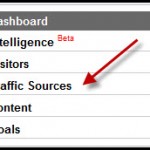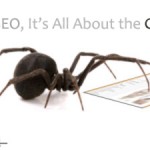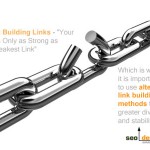Theoretically, websites do not get stronger by themselves, they need help. While aging a website is a factor for prolonged growth in rankings, today’s SEO tip shared below works by virtue of on-site evolution in tandem with elevated digital trust and authority (the real purpose of SEO).
The undeniable value of adding topical theme-relevant content is imperative for long-term positioning. Why, you might ask? Because as your website grows, your opportunity to raise your website’s SEO ceiling (the range of competitive keywords you can rank for by default/virtue of your websites trust, age and theme) shift and evolve concurrently.
For example, approaching SEO (without website authority), you might think of producing rankings the hard way (trying to rank before you have the clout and authority using links alone) vs. building authority and rankings emerging as if by default from the correlation of your on site optimization strategy with minimal off site dependency.
As a testament to this method, our website ( SEO Design Solutions ) can rank in 10 minutes from publishing a keyword in a title in a blog post for a keyword up to 4,000,000 competing pages in phrase match (which would take a less authoritative site months to rank). Our websites SEO ceiling is higher due to authority and trust. This in turn allows us to devour less competitive keywords with ease, often by simply creating a page (and building a few themed internal links).
The beautiful thing is, this is a scalable, repeatable SEO tactic. Although, it does require long-term dedication, the results are immense when you implement a strategic content development plan based on topical nodes of relevance within a market.
The genuine premise is based on leaving no page behind or rather understanding the life cycle of what and how a webpage will evolve and eventually serve as a topical/pivotal hub. The distinction of this tactic is that it allows a skilled SEO practitioner to set the stage organically and allow their SEO seeds to unfold over time vs. just focusing on landing pages and links alone.
For example, if your website architecture and link-flow are properly formatted from the onset, meaning:
- Capping links between pages (meaning minimizing excessive leaks from a high volume of navigation or contextual links) such as capping links on a page to under 50 links (for navigational links) or capping contextual links to 1 link for every 100 words of body content (i.e. 500 words 5 contextual links).
- Prevention of duplicate content from recurring elements in sidebars or templates (which neutralize relevancy on the page level and prevent a page from passing optimal ranking factor to other mission critical landing pages).
- Page specific landing pages are created in the root folder (using exact match URL’s, succinct titles, reflective H1 and H2 tags and meta data).
- An internal linking strategy (including internal link thresholds) are planned and executed (via dripping internal links in content over time).
– Then you can funnel ranking factor at leisure to dozens, hundreds or thousands of landing pages over time.
The first prerequisite for grooming a favorable search engine ranking is simple; create a page specifically that corresponds to your keyword. After the “exact match” landing page is completed, not you have a destination to provide internal link weight to those “exact match” shingles (keywords or group of words).
The more dynamic the website, the more opportunity for growth, mind you, this means leaving no page behind (through lack of internal links, and / or link flow).
I suggest you plan on getting 3-5 links min. for internal “supporting article” pages. Even though their purpose may not be to get ranked, if they are not indexed or have enough citation (on page or off page) then they are virtually useless unless cultivated.
So, if you are expecting to “just add content” without rhyme, reason or strategy and you inadvertently neglect to (a) get the supporting page sufficient link-flow (from on site or off site means), then those pages cannot pass along any on page reputation, since (b) those pages alone (without support) are not considered authoritative.
One way to accomplish this simply is through RSS syndication and promotion of deep nested URL’s from your category or supporting article pages (using RSS aggregators to ping other services that create instant backlinks).
To develop backlinks on auto pilot, you can leverage properties such as technorati, icerocket, jumptags, amplify and other RSS syndication sources provide trusted backlinks that pass the necessary validation for a search engine to assess the page as worthy.
The key to this technique is to create internal pages budding with links from outside sources, while simultaneously scaling additional content (through website silo architecture). The process works by cultivating pages that can attract their own links (2) those pages eventually gain Page Rank and/or domain trust and (3) they become pages that (a) rank and (b) can pass along vital ranking factor vs. an orphaned page (that previously, you may have inadvertently expected to create value). The stronger all your pages are, the stronger the website becomes.
The takeaway is:
1) Create stellar on page content for the long-haul (create content that can stand the test of time and eventually stem to rank for additional keywords and key phrase variations).
2) Get links to internal pages from (a) tactful internal links (b) categorical sitemaps (c) other theme relevant internal pages and (d) deep links from a variety of IP sources.
3) Never underestimate the budding of authority (pages you forget about today could be stable landing pages of tomorrow and stem into a steady baseline of improved traffic and conversions.
So, create with the long-term purpose of building an authoritative website using expert content that is both compelling, engaging and worthy of syndication and allow that syndication /citation to explode through exceeding the tipping point / thresholds for their primary “groomed” keywords.
Coupled with a firm understanding of a hierarchical structure (using themes and keyword clusters) you can scale over time (much like Wikipedia) to devour an entire semantic market, one keyword at a time.










Excellent post. Google now sees themselves more of a relevance engine than a search engine. So themed content around your page keywords enhances your page and domain authority.